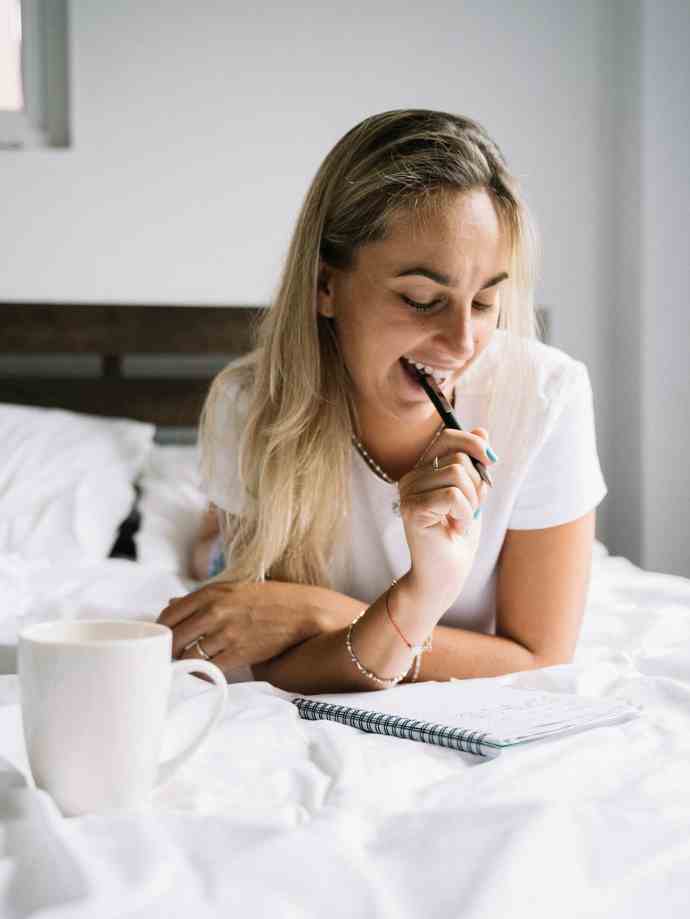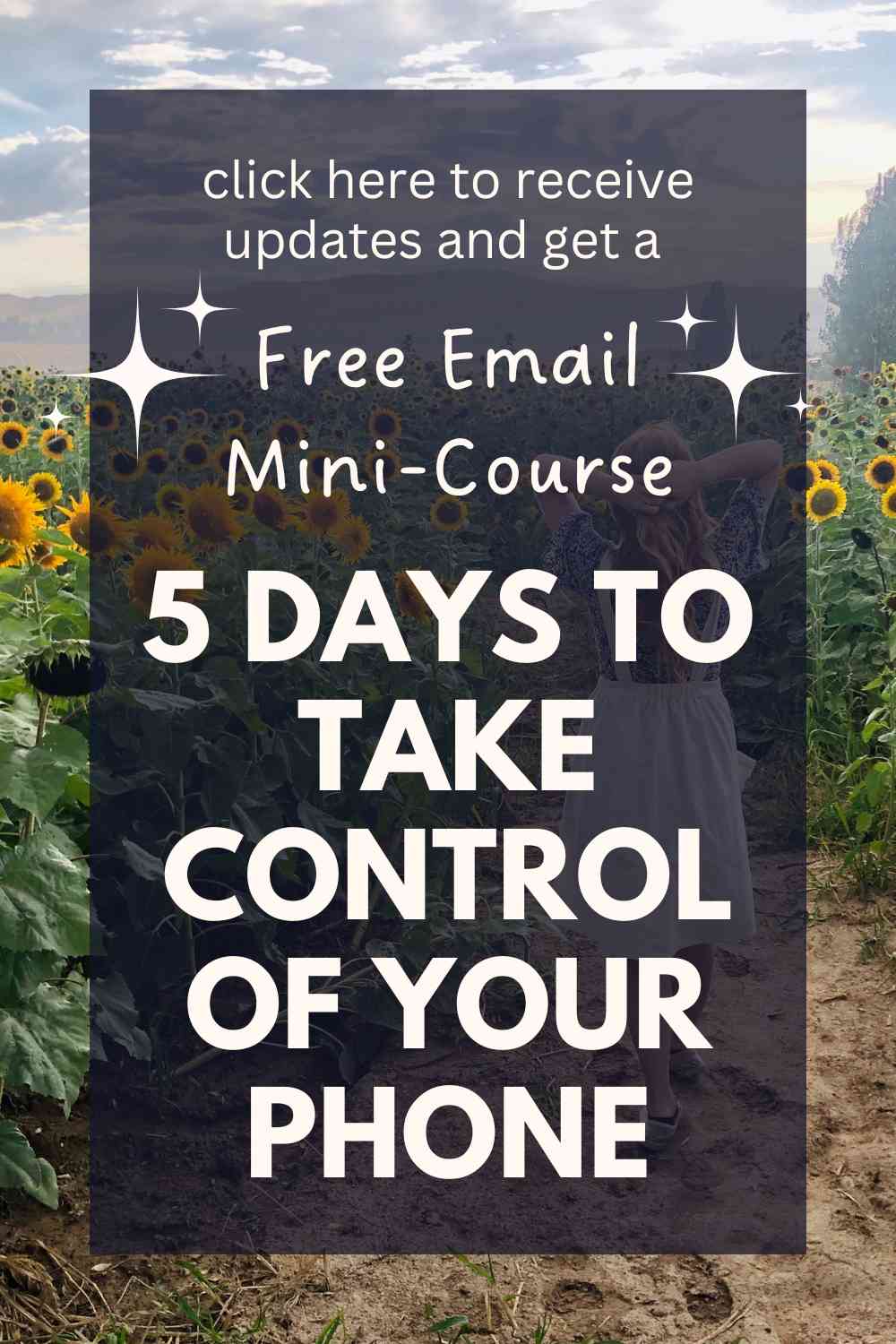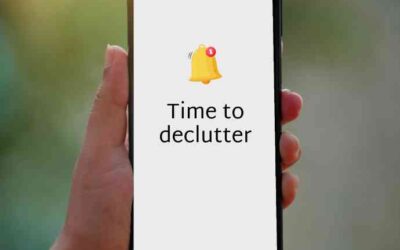I get you.
You want to create a life you love, you want to improve yourself, and you want to be productive and in control of your life.
But there are some days when we just don’t hit that mark. You do things and they don’t feel right. You don’t feel great about what you’ve accomplished that day.
Sometimes it’s because you know what to do, but (for whatever reason) you don’t do it. For example, I know that I would feel better if I didn’t skip my workouts and eat leftover cake for breakfast, but occasionally, I’ll still do it. 😛
Other times, you may not know exactly how to fix the thing you’re doing that doesn’t feel great.
In my case, I have a tendency to be a huge procrastinator, and I don’t always know how to fix that. (If you’re a procrastinator too, you’ll know that the solution is never as simple as, “Just do the work! What are you waiting for?”)
Recently, I learned a trick that completely changed the way I view self-improvement. It has allowed me to make sooo many positive changes in my life (even when I’m not sure where to start!) without the pressure of getting it right every single time.
Here it is:
Treat life like an experiment.
This is a strategy that many successful people have talked about, including Tim Ferriss and Mark Manson. The idea is that treating everything in life like an experiment removes the stigma of failure, because if you’re just running an experiment, there is no failure, only feedback.
The truth is, not everything you do in life will work out. Not all the tactics you try will be successful. But you don’t have to look at those as failures; instead, see them as experiments that give you new information.
Here’s an example from my ever-changing journey towards peaceful productivity:
I was struggling to get work done, and at the end of one particular day I looked back and felt frustrated because I felt like I wasted a lot of time, specifically by scrolling on Reddit.
(Sidenote: I don’t even have a Reddit account, but I love reading posts on there and sometimes it becomes a journey down a rabbit hole – can anyone else relate?)
So, the next day I tried the experiment of using my willpower to not get on Reddit as much. The outcome? It didn’t work. At the end of the day, I still felt like I had spent too much time scrolling on the forum.
Instead of looking at this with an attitude of, “I suck, I don’t have enough willpower, etc.,” I chose to look at it as feedback.
My brain: “Huh. Simply willing myself not to spend a lot of time on Reddit doesn’t work. What could I try instead?”
And it’s off to the new experiment – setting a timer, using a website-blocker, getting up and dancing every time I wanna go on Reddit, or whatever tactic I can think of.
(By the way, I still get distracted by Reddit sometimes. My current experiment is to avoid my favorite sub-Reddits completely until the weekend, and then I use the filters to see the Top posts that week. So far I like how it’s working!)
Sometimes you get feedback on your experiment immediately; sometimes it may take a few weeks or months of experimentation before you can make a verdict on if it’s working for you or not.
Experiments and Theories
Many times, the experiments you’ll want to try are ones that test a theory you have.
If you think about it, all changes that we make usually are born out of something we believe will happen – a theory we have – whether it’s conscious or not.
Back in 2019, I quit social media, because I had a theory that it would help me be happier.
Here are some theories you might choose to test for yourself:
- If I put my gym clothes by the foot of my bed, I’ll be more likely to exercise.
- Cooking will be more fun if I listen to an audiobook while doing it.
- Writing just 500 words a day will allow me to finish my book in six months.
- Taking 30 minutes to read a fiction book before bed will help my evening routine be more restful.
- Sleeping with my phone away from my bed will make it easier to get up in the morning.
- Giving more praise and less criticism to my child/partner will improve our relationship.
- Money is better spent on experiences, rather than things.
- Watching just one episode of TV a day will improve my life.
Try running an experiment every week, or a mini-experiment in a day, to test one of your theories.
At the end of your day or week, check in with yourself and how your “experiment” went. Did you gather enough data to prove your theory correct? Or maybe you’ve disproven it.
Eventually, your experiments will give you so much evidence of your theories that they will be something you naturally live by.
Experiments and Problems
One thing you can count on every day is that a problem will come up, right? Or you’ll fall short of your goals or desired habits. It happens.
Instead of viewing those problems or shortcomings with frustration, see them as opportunities for new experiments.
Think: “This didn’t work → so what can I try tomorrow?”
Remember, there are no failed experiments! Even if something you try doesn’t work out, it’s just new information that can get you closer to finding the thing that will.
Best of luck!







